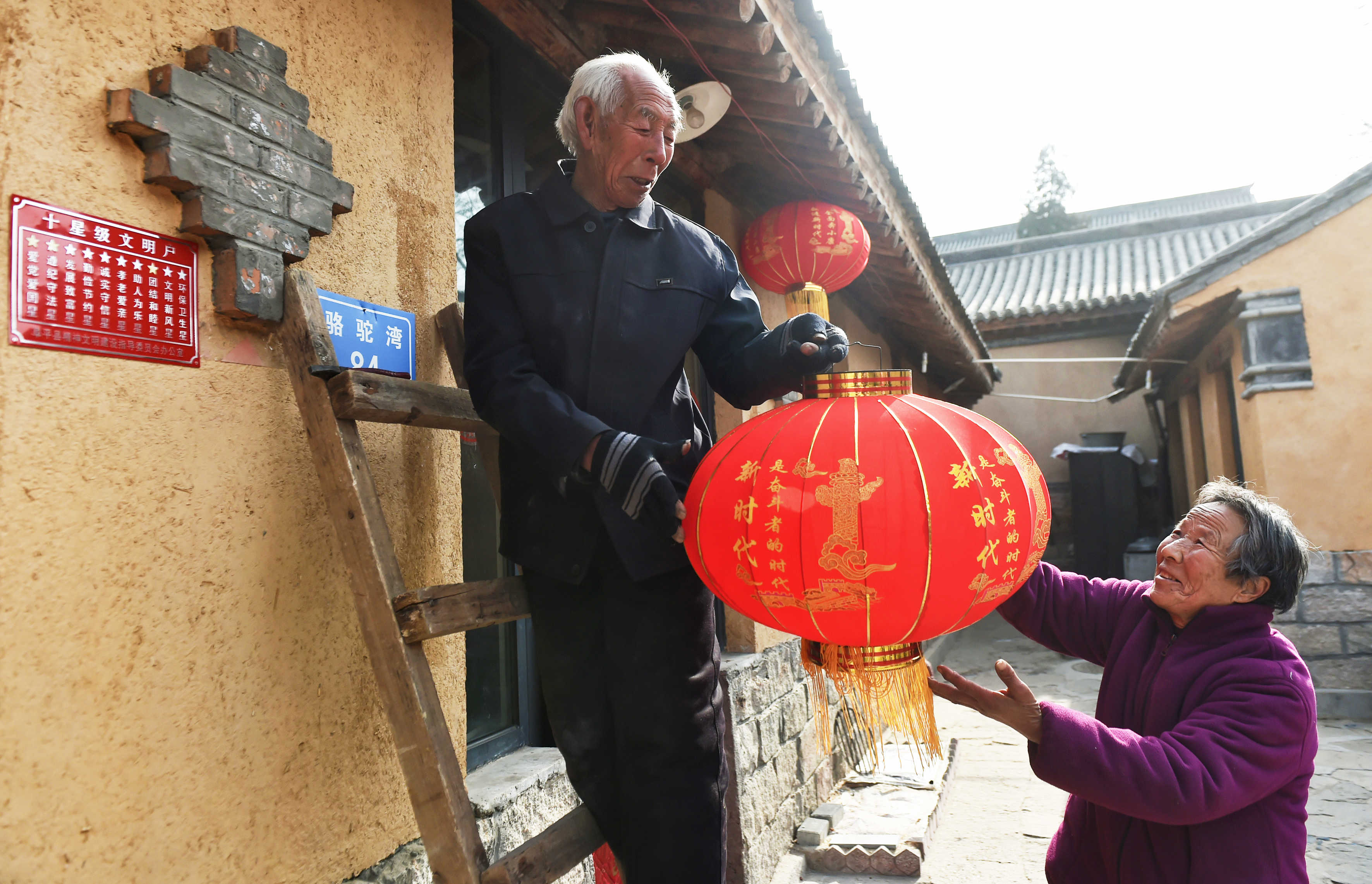Government policies, young people's contributions and targeted industries boost the economic development of Luotuowan Village, Longquanguan Town, Fuping County, north China's Hebei Province.

Tang Zongxiu and her husband hang a lantern for Spring Festival. (Photo: Shi Shengquan/People's Daily)
Luotuowan Village, which used to be an impoverished area, was lifted out of poverty in 2017. Social insurance benefited the final three poor people in the village.
Chinese President Xi Jinping visited the village from December 29 to 30, 2012. Some 428 out of 608 villagers were poor then.
All villagers now live in new houses, thanks to government policies. Tang Zongxiu enjoyed a family reunion at her new, bigger house during this year's Spring Festival with her daughter returning home from Beijing, bringing Tang's grandchild.
Tang's old house could not hold all her four daughters at the same time due to limited space. The daughters always suggested Tang stay elsewhere during rainy days for fear that the old house would collapse.
"Now we have enough room for my daughters! My daughter in Beijing came back home too!" Tang said happily. "Without government subsidies, we couldn't have afforded building a new house."
Tang's new house was built in October 2016. In recent years, Fuping County has relocated 31,850 impoverished people, making half of the rural population in the county move to new houses. Luotuowan village now sees 277 households living in new houses.

The Luotuowan Village, Hebei Province. (Photo: Zhao Wei/People's Daily)
While the residents accomplished relocation, the younger generation who have left the village for work have come back and contributed to the village's economy. Li Aimin, the village's deputy director elected in May 2018, is one of the post-80s generation who started businesses at home after years of working in big cities. In May 2013, he was one of the first to open a farmyard for agritainment in the village.
"My wife enjoys living here instead of big cities in the past. My mother-in-law also spends some time here every year," Li said.
Dozens of youths compete against each other to make a better living. Five of them serve as grassroots officials in the village's Party Committee.
"The young generation replenishes the village's committee and brings hope for development," said Liu Junliang, the first secretary of Longquanguan's Town Party Committee.
The prosperity of targeted industries has enhanced people's confidence in development. Scale cultivation of pigs is one of them.
The village has a tradition of raising pigs, but scattered pig-raising by farmers in the past could be affected by market volatility. A collectively-owned enterprise established by local officials and a support team from the provincial government has earned more than 100,000 yuan by the end of 2018 by pig-raising, and brought dividends to villagers.
The company bought and raised 50 black pigs, after receiving orders from ads on WeChat. The company sold out pork in boxes quickly, twice the price of pork produced by individual farmers before.
After hearing the news of receiving dividends, villagers gathered at the village's Party Committee.
The company is considering developing homestay tourism, taking advantage of featured folk houses as the next step.
"Fuping County has reduced its poverty ratio from 54.5 percent in 2014 to 6.93 percent, and the impoverished population from 108,100 in 2014 to 12,800," said Liu Jing, the first secretary of the county's Party Committee.
(Compiled by Zhan Huilan)


